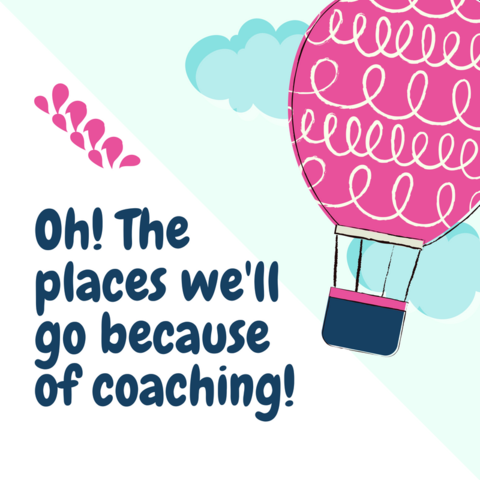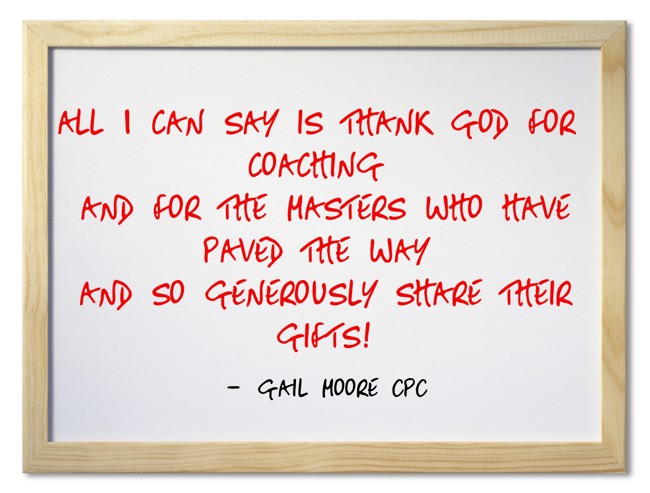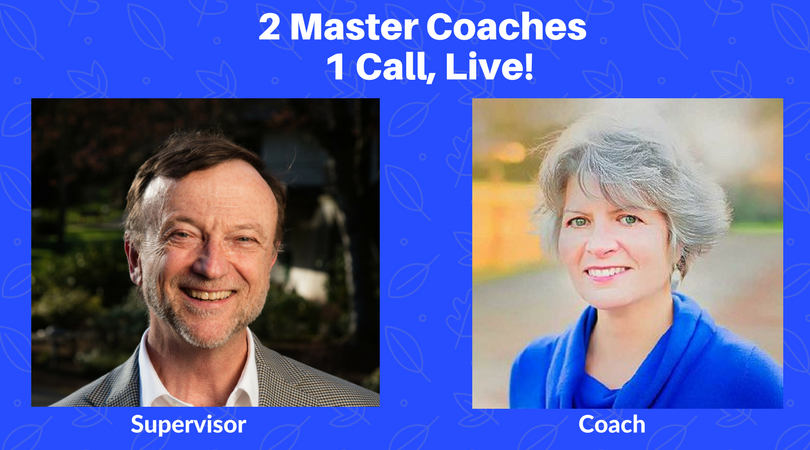What Does It Take to Achieve Mastery?
By Dr. Marcia Reynolds MCC (MMC Master Coach and guest blogger)
There is a commonly-held belief that practice makes perfect and achieving 10,000 hours of practice will grant you mastery. Many studies dispute this. What separates a superstar from a high-achiever seems to have little to do with deliberate practice. [i]
There is a requirement to learn the fundamental skills of any sport, performing art, or profession. Excellent skills put you in the running, then genetic and cultural advantages can give you an edge. Practice can override some disadvantages but being fully present while performing is the critical factor that can put you over the top into the zone of mastery.
Mastery is about awareness, not perfection
Artist Agnes Martin says happiness is ever-present and embedded in life, not derived from objects or people. “Happiness does not appear and disappear,” Martin wrote. “It is our awareness of happiness that goes up and down.” You are either aware of happiness or not. [ii]
The same is true of mastery. You first learn and apply the fundamental skills of your endeavors, but then you must trust what you know and forget the steps. As with happiness, mastery is more about noticing and enjoying what is happening in the moment without focusing on the mechanics of your practice.
The zone of mastery
To control your mind, you first have to empty it.
In 1998, I was asked to create a program for professionals to find their zone of excellence based on studying what top athletes do to perform well under pressure. I interviewed top athletes in six sports and reviewed research in sports psychology on how to master the art of being present.[iii] I found the best competitors do not think about anything, not even winning, when they perform at their best. Thinking of winning causes their brains to entertain the possibility of losing. Instead, the champions cleared their minds, allowing their bodies to freely move as they enjoyed doing what they most loved.
In an interview during the 2000 Olympic Games in Sydney, champion sprinter Michael Johnson said that crossing the finish line feels great, but the real thrill comes at the start of the race. He said when he ran, he didn’t think about the passage of time. He felt the ease of his body moving and the rush of cool air on his skin. “The challenge,” Johnson said, “is to maintain this presence until the experience is over and it’s time to celebrate.”
I have since used what I learned from the athletes to teach leaders and coaches world-wide to bring their brains and bodies into harmony to help them perform at their best.
The four steps I teach include:
- Relax your body.
- Detach from the thoughts running in your head.
- Bring the Center of your body into your awareness.
- Focus on how you want to feel. [iv]
Use these four steps to bring yourself back into alignment in any stressful situation. You can use them as a ritual to center yourself before the day begins and at night to help you sleep. Any time you catch yourself contemplating the past, fearing the future, or worrying about how others are judging you, you can deliberately alter your state of mind by practicing the four steps.
Practice being fully present for one minute while observing the world around you. If your mind drifts off or you start judging, analyzing, or evaluating, let your thoughts float away. Return to noticing the details of the world around you for sixty seconds.
Tomorrow, increase your practice to two minutes. Each day, see how much longer you can go before you brain fills up with thoughts.
Mastery in communications
Once you feel comfortable being present in the moment, you can take your practice into your social interactions. Being present while speaking and listening builds rapport. You not only notice and hear more of what people are saying and expressing, they feel safer with you. The energy from your center adds a positive dynamic to your conversations.[v]
Mastery in communications is the deepening of presence
French philosopher and author Simon Weil said, “Attention consists of suspending our thought, leaving it detached, empty, and ready to be penetrated…waiting, not seeking anything, but ready to receive.” Presence then calls on us to release what is in our minds to be open to receive what we hear and sense from the people we are with.
Once you relax, detach and center with others, focus on feeling gratitude or care for the person you are with. Appreciate the amazing being in front of you who is on a journey different from yours. Receive their words and expressions and share what you picked up to see if you perceived correctly. Notice when judgment creeps in or your when your urge to give your opinion hijacks your brain. Then choose to clear your mind. You won’t lose your good ideas; they will return if they were important.
You will find that often, all people need from you is to feel heard and valued. If you listen with a clear mind, you will better discover what you need to do or say next.
Staying present takes guts
Applying your skill while being present will take patience as you are overcoming a lifetime of distracting mental habits. You may also need courage; standing in the present without thinking can feel unnerving. It can also be magical. You might find you are wiser and more capable than you ever imagined. You will be amazed not only with the clarity and contentment you feel when you work in the present but also with the positive results when working with others.
Master staying present and you will be a master in your profession.
________________________________________________________________________________________
[i] Nowack, K. (2017) Facilitating successful behavioral change: Beyond goal setting to goal flourishing. Consulting Psychology Journal: Practice and Research, Vol 69, No. 3, 153-171.
[ii] Glichmer, Arne. Agnes Martin: Paintings, Writings, Remembrances. Phaidon Press, 2012
[iii] Murphy, Michael, and White, Rhea A. In the Zone: The Transcendent Experience in Sports. Addison-Wesley, 1978.
[iv] Reynolds, Marcia. Outsmart Your Brain: How to Master Your Mind When Emotions Take the Wheel. Covisioning, 2017.
[v] Geller, Shari M. and Porges, Stephen W. (2014) Therapeutic Presence: Neurophysiological Mechanisms Mediating Feeling Safe in Therapeutic Relationships. Journal of Psychotherapy Integration, Vol. 24, No. 3, 178–192
_____________
Marcia Reynolds Psy.D, MCC
Dr. Marcia Reynolds is fascinated by the brain, especially what triggers feelings of connection, commitment, and possibility. She is able to draw on her research to help leaders have more effective and meaningful conversations. She has delivered workshops in 35 countries and has presented at the Harvard Kennedy School, Cornell University, Edwards School of Management in Canada and Moscow School of Management in Russia.
Marcia is a true pioneer in the coaching profession. She was the 5th global president of the International Coach Federation and is the immediate past president of the Association for Coach Training Organizations. She is the training director for the Healthcare Coaching Institute at Virginia Tech and teaches for coaching schools in Russia and China.
Read Marcia Reynolds full bio.
For more ways to develop presence in leadership and coaching, check out The Discomfort Zone: How Leaders Turn Difficult Conversations into Breakthroughs
www.outsmartyourbrain.com
Questions? email: marcia@outsmartyourbrain.com




















